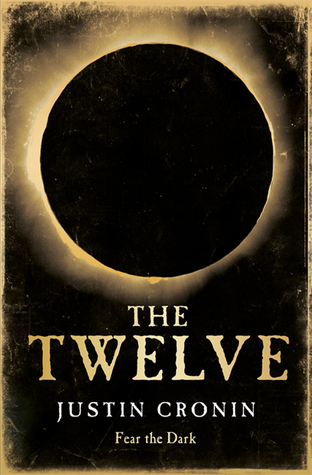Book Review: “The Twelve” by Justin Cronin — Reviewed by Lou Stella
 Introduction:
Introduction:
On September 10, 2011, I posted a “What I’m Reading” report on Justin Cronin’s, The Passage. I liked it, so today I’m very pleased to bring you a review of the sequel, The Twelve, from another new “…on Anything, Really” reviewer, Lou Stella.
Lou’s reviewer bio is below, but I feel the review more than speaks for itself.
—
Book Review: The Twelve by Justin Cronin — Reviewed by Lou Stella, (Orion Books, 2012, 568 pp)
The Twelve is the sequel to The Passage, in which Justin Cronin’s post-apocalyptic world is over-run by nightmarish monster-cum-vampires.
Eviscerating and devouring humankind (and any other large animals they find), they reduce humanity to a few tiny, besieged enclaves under constant and unrelenting threat of falling prey to the monsters after nightfall. The eponymous ‘Twelve’ are twelve ‘infected’ death-row prisoners who—transformed by a military biological weapon experiment-gone-wrong—escape, dismember and chow down, and multiply by infecting some of their human victims who are then linked forever to their monstrous maker.
The story in The Passage centres around several of the people from one community — the ‘First Colony’ (perhaps the last colony, as far as they know) — who have been completely isolated for many years, and their journey out into the world as their community faces a fast-approaching crisis and annihilation. In The Twelve, a central protagonist, Peter, and his friends from the expedition, learn that if humanity is to survive they must do the seemingly impossible — in order to destroy all the immensely powerful ‘virals’, they must destroy the Twelve, and only then will their offspring perish. They are drawn to a concentration-camp-like place called the Homeland, ruled by a few despotic and monstrous people.
Like The Passage, I enjoyed this book for its dark nightmarish mood, for its pervading sense of imminent and catastrophic danger and for the good yarn about how ordinary people (and some extraordinary ones) team up, and step up, in the face of a seemingly hopeless situation and virtually omniscient foe.
The stories of what were minor characters in The Passage drive the tale, linking elements of and enlarging the world Cronin has created. For me, Cronin’s empathetic portrayal of people who have endured a lot of very bad stuff brings Stephen King’s writing to mind.
Big thumbs-ups to Justin Cronin also for plenty of good female characters. The only niggle I have with the (many) characters and their linking stories is that I was continuously trying to find where I had come across them earlier in the story – I got a bit confused, but that could just be one of my character flaws (I felt like I needed a flow diagram).
I enjoyed the earlier and middle parts of the book most of all, probably because that is the part of any story I usually like best, rather than the big drama finishes. I enjoyed ‘The Field’ chapter in particular: great delivery, scene-setting, sense of imminent doom … But I did wonder why the H&S checks were less than complete (would never pass at my workplace!).
My only other gripe was the continuous dismemberment etc. of people – it was getting a bit tiresome by about halfway, perhaps because I reread The Passage, and then read The Twelve over one weekend.
That I did read it in a weekend is strong evidence of my enjoyment though, since the days of reading for hours is pretty much in the past for me. Overall, a damn good read — creepy and a bit scary, an engaging and involved story that drew together many threads and characters.
If you enjoyed Cronin’s first novel The Passage, novels by Stephen King, or Max Brook’s World War Z, you will probably enjoy The Twelve as well.
—
About the Reviewer:
Lou Stella is a scientist, conservation worker, and former plumber who removes gorse and pines from her rural land with chainsaw and scrubcutter, before replanting with native trees. She then lies exhausted on her couch and reads—and occasionally reviews—dystopia and historical fiction.







